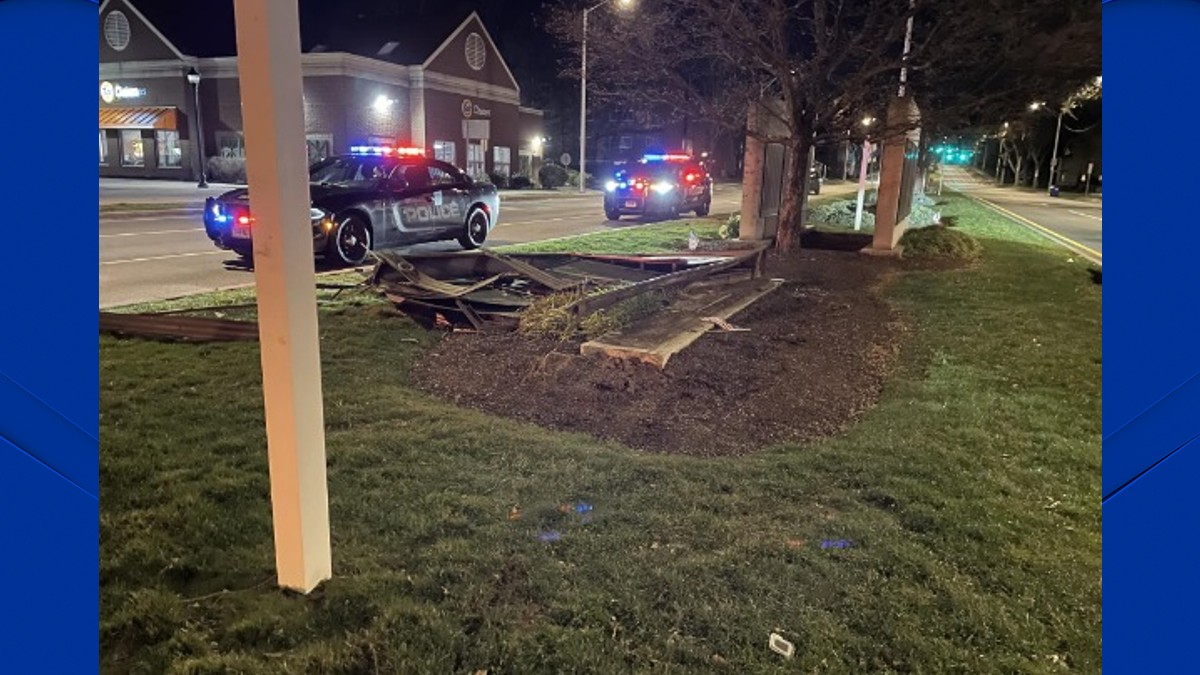A decades-old missing person case in Connecticut is prompting proposed federal legislation.
Billy Smolinski disappeared from Waterbury nearly two decades ago, when he was 31 years old. His family still does not have answers about exactly what happened, but they say they encountered systemic challenges while working with law enforcement to search for their missing son.
Now, Help Find the Missing Act, or “Billy’s Law,” aims to close loopholes in America’s missing persons system.
“Billy was a very active kid,” Billy's mom Janice Smolinski said.
Get Connecticut local news, weather forecasts and entertainment stories to your inbox. Sign up for NBC Connecticut newsletters.
Janice remembers his bright blue eyes and big heart.
“He was just your regular blue-collar type of person, who really had a good heart,” she said.
The Smolinskis, who now live in Florida, raised their kids in Cheshire. When Billy was 26, he bought a house in Waterbury.
Local
“He had three jobs, making ends meet, and he really loved life,” Janice said.
That home on Holly Street was the last place Billy was ever seen. He went missing on Aug. 24, 2004.
“When you have a loved one go missing, your heart just drops out from underneath you,” Smolinski said.
Billy left behind his truck, keys, wallet and beloved dog Harley.
“We knew immediately that there was something wrong,” Janice said.
In the months and years that followed, Waterbury Police worked the case, which also got escalated to Connecticut State Police and the FBI.
“We can't go on without finding answers,” Janice said.
She says the family has dedicated their lives to finding Billy, but they encountered obstacles.
“The Smolinskis were victimized twice. Once by the disappearance and possible murder of Billy, but then by a system that didn't allow them to participate in the search,” Senator Chris Murphy said.
The family is working to address loopholes alongside the Democratic U.S. Senator.
Murphy first introduced Billy’s Law in 2009. It failed in Congress, but now he is re-introducing the bipartisan act.
“The fact that we don't have a centralized database of unidentified remains is really unfortunate,” Murphy said. “Your loved one could be sitting in a morgue, on the other side of the country, and you just don’t know.”
Each year, 600,000 people go missing in the U.S. At the same time, there are 4,400 sets of unidentified human remains recovered, according to the FBI’s National Crime Information Center (NCIC).
If passed, Billy’s law wound fund a database called NamUs, which stands for National Missing and Unidentified Persons System. Billy Smolinski has a page on that site.
It is a tool available to the public, but it also helps law enforcement, coroners and medical examiners match missing people to unidentified remains.
Billy’s Law would additionally connect NamUs to the FBI NCIC so that those two systems could communicate and information would be consolidated.
It would require missing adults be reported to NamUs, create grants to help reporting and require the DOJ to issue guidelines and best practices to help find the missing.
“These are the things that often break cases, and sometimes solve cases,” Waterbury Police Chief Fernando Spagnolo said.
Spagnolo supports Billy’s Law.
“Anything that allows law enforcement and families to work cohesively together, and to take systems that are already in place, operating separately, and bringing them together, I think it's a good thing,” he said.
After Waterbury Police initially faced criticism from the Smolinskis for their handling of the case in 2004, the chief says the department is dedicated to following new leads.
One of the latest developments: a dig on Fort Hill Avenue in Shelton in November of last year.
“As a local law enforcement officer who grew up in my career with with the Smolinski case, it's certainly something that I want to help this family have some closure to, or at least some answers with,” Spagnolo said.
Billy's 18-year disappearance has caused the Waterbury Police Department to examine its own practices when it comes to handling missing person cases. Spagnolo says it has even prompted some policy changes.
The department now enters missing adults into the national database within 24 hours, and treats missing persons cases as homicides.
“We took their criticism to heart,” Spagnolo said. “There's no better drive or a stronger desire than a loved one’s to find answers. It's really important to have their input.”
The Smolinskis now believe Billy was murdered, based on what they have learned over the years.
“Families that have a missing loved ones, it's a roller coaster of not knowing. Your life has changed forever,” Janice said.
If Billy’s Law passes, Janice hopes it could help families find closure, or even another outcome.
“Not all missing persons are deceased,” she said. “There's always hope. And I'm hoping that this piece of legislation could help a missing person to come home, so their loved ones could hug and hold them again.”
The parents of Gabby Petito, the woman killed by her fiancé while traveling cross country last year, are also behind Billy’s law. Her father, Joe Petito, says the bill is "long overdue."
Anyone with information related to Billy's disappearance is asked to contact the Waterbury Police Department at (203) 574-6941 or the FBI’s New Haven Office at (203) 777-6311.



